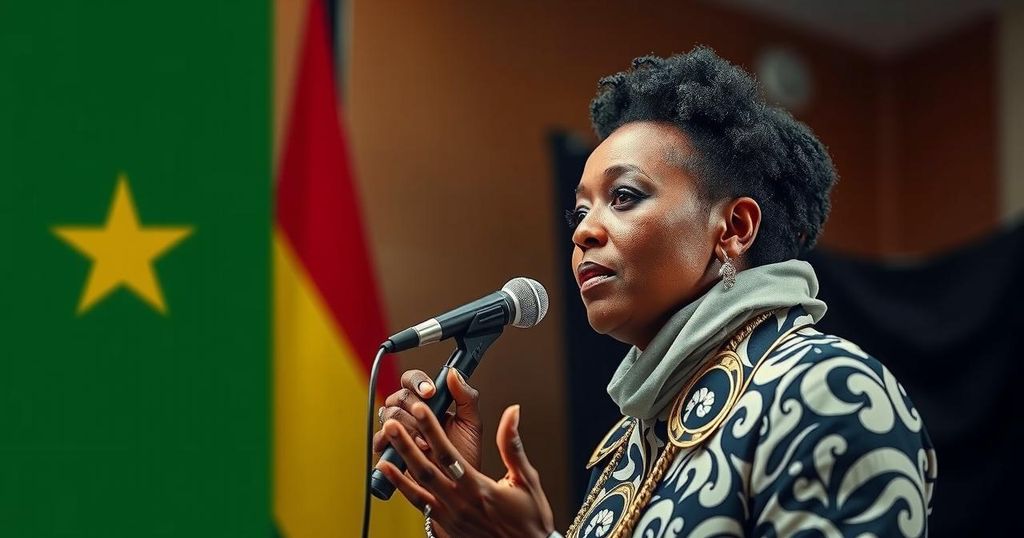Namibia Elects First Female President Amid Election Disputes

Namibia elected its first female president, Netumbo Nandi-Ndaitwah, with 57% of the vote, amid allegations of election irregularities from opposition parties. Nandi-Ndaitwah’s triumph signifies continuity for the ruling Swapo party, which has governed since independence in 1990, but highlights a decline in public support for the party and a noteworthy rise of opposition factions.
Namibia has achieved a historic milestone by electing its first female president, Netumbo Nandi-Ndaitwah, who secured 57% of the vote in the recent presidential election, thereby ensuring the continuation of the ruling Swapo party’s long-standing governance since the nation gained independence from apartheid South Africa in 1990. Nandi-Ndaitwah, aged 72 and formerly the vice-president, expressed after the announcement of results that “The Namibian nation has voted for peace and stability.” Despite her victory, opposition factions have expressed dissatisfaction with the election process, which experienced notable technical difficulties, including ballot paper shortages, and they plan to legally contest the results.
As Namibia’s new leader, Nandi-Ndaitwah’s leadership arises amid growing unrest in southern Africa, where other long-established liberation parties have faced significant challenges from younger, disenchanted voters. Notably, her electoral performance contrasted with the diminishing support for her party, which garnered only 53% of the parliamentary vote, a decline from 65% in the previous election cycle. Notably, her opponent, Panduleni Itula, received 25.5% of the vote, leading the Independent Patriots for Change party, which has since emerged as a notable contender, underscoring a shift in Namibia’s political landscape.
The election of Netumbo Nandi-Ndaitwah as Namibia’s first female president marks a significant development in the country’s political history. The Swapo party, which has governed Namibia since its independence in 1990, has faced declining support from the electorate, demonstrating a potential shift in voter sentiment. This election follows a series of political upheavals in southern Africa, where established parties have lost traction due to younger voters’ dissatisfaction with leadership. Namibian voters have placed their trust in Nandi-Ndaitwah, a seasoned politician with a history of involvement in the country’s independence movement and a record unmarred by corruption.
In summary, the election of Netumbo Nandi-Ndaitwah as Namibia’s first female president represents both a historical achievement and a response to shifting political dynamics within the nation. While her victory extends Swapo’s rule, the opposition’s claims of election irregularities highlight ongoing tensions in the political landscape. The outcome may signal a need for reform and responsiveness to the aspirations of a younger demographic that seeks change across southern Africa.
Original Source: www.theguardian.com






